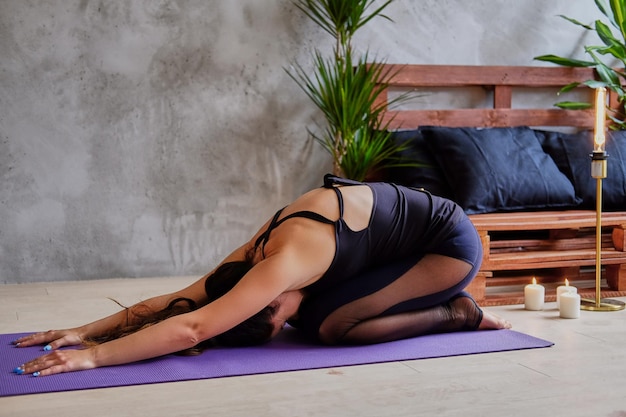
A yoga body isn’t just about flexible limbs; this ancient practice can also enhance memory, heart, and bone health, according to Anna Magee.
In the UK, people are now spending around £790 million annually on yoga classes and mats, showing just how popular practices like downward dogs and cat cows have become. While some new yoga hybrids like rage, naked yoga, and even poses on paddleboards or horseback might seem odd, the genuine benefits of yoga are increasingly backed by science.
Researchers from UCLA found that a three-month yoga and meditation course was more effective than memory exercises in reducing age-related brain impairment. Another study found yoga improved sleep in breast cancer survivors.
Lucy Edge, a 53-year-old former advertising executive, turned to yoga instead of prescribed antidepressants when she faced deep depression. During a six-month career break in India, she learned yoga and, although she didn’t achieve the “yoga goddess” body, she found a happiness and contentment she hadn’t experienced before. Lucy has since authored three books about yoga and established Yoga Meds, listing over 300 clinical trials on yoga’s benefits for conditions like arthritis, insomnia, and obesity. She emphasizes the importance of evidence-based claims, given her scientific background.
Studies show yoga can significantly benefit your health. For memory improvement, UCLA research involving adults over 55 compared 12 weeks of memory exercises and yoga. Those practicing yoga had better spatial and visual memory improvements, less depression and anxiety, and increased stress resilience. Participants only needed an hour of Kundalini yoga weekly and 20 minutes of daily Kirtan Kriya meditation involving chanting, hand movements, and visualizations.
When it comes to heart health, yoga might be just as beneficial as traditional exercises like brisk walking. A 2014 review published in the European Journal of Preventative Cardiology suggested yoga could lower heart disease risk. Stress reduction through yoga helps manage heart disease by lowering stress hormones that raise blood pressure and heart rate and can lead to blood clots. Dr. Mike Knapton from the British Heart Foundation noted yoga’s positive effects on blood pressure, cholesterol, and weight—all risk factors for heart disease.
For beginners, try gentle yoga poses that Charlotte Watts, a yoga teacher and nutritional therapist, outlines in her book “The De-Stress Effect.” Anna Ashby, a senior teacher at Triyoga Studios in London, suggests Restorative yoga, where postures are supported on bolsters and held for up to 12 minutes to deeply relax the nervous system.
Sarah Shone, a musculoskeletal physiotherapist and yoga teacher, developed yoga classes as part of the Primary Care Trust’s rehabilitation program for back pain, with 87% of participants reporting pain reduction. Yoga is also beneficial for incontinence by targeting pelvic floor muscles and can boost bone density due to its weight-bearing nature. Shone advises beginners to inform their teachers of any health issues and start with gentler styles like Hatha or Iyengar yoga.
Investing in a good yoga mat is important for comfort and joint protection. For those who practice regularly, consider the durable and eco-friendly Elephant Cork Yoga mat from Valka Yoga. At 3mm thick, it provides ample cushioning and its antimicrobial cork surface is great for sweaty sessions. Valka Yoga even plants a tree for every order.
Matching yoga blocks can enhance your practice, especially in achieving difficult poses. Cork blocks, though heavier than foam, offer stability and grip.
Whether you’re just starting yoga or are an experienced practitioner, there are various styles to explore:
– Try Yin or Restorative yoga: These classes, often under candlelight with blankets and bolsters, are deeply relaxing.
– Try Vinyasa Flow: This energetic class links postures to breath in a dance-like sequence adaptable for beginners.
– Try Iyengar yoga: A precise style focusing on alignment and it uses props to help you into poses.
– Try Anusara yoga: Originating in LA, this modern style focuses on alignment and flowing movements, often with upbeat music.
– Try Yoga Therapy: This specific type of yoga is designed to help heal injury or illness and is practiced by specially trained teachers.
In conclusion, yoga offers numerous physical and mental health benefits, making it a valuable practice for a wide range of conditions.